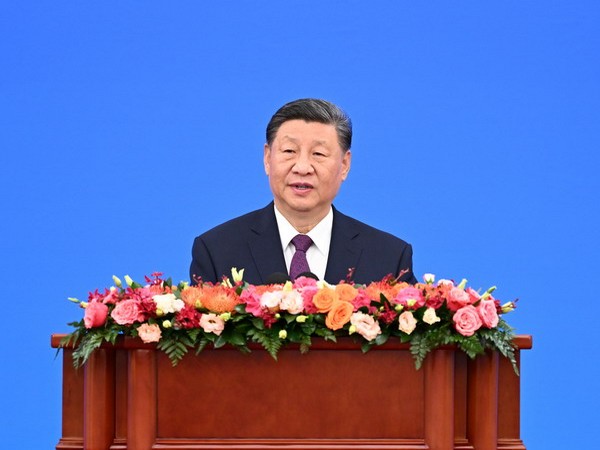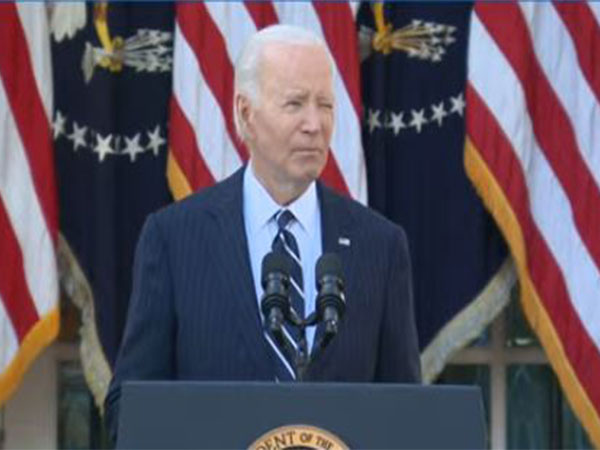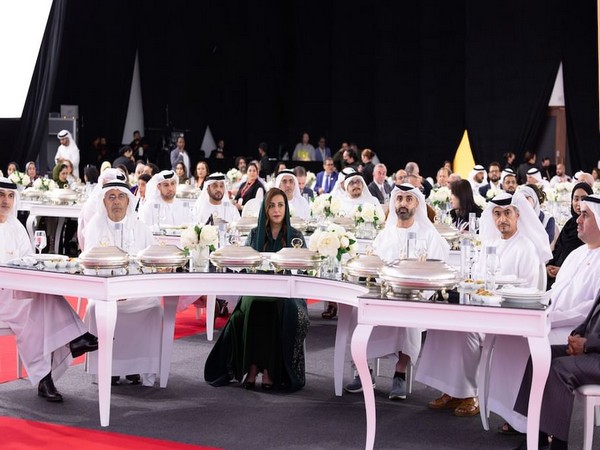Beijing [China], June 29 (ANI): Chinese President Xi Jinping on Friday highlighted the relevance of India’s ‘Panchsheel’, to resolve current conflicts during a conference in Beijing to mark its 70th anniversary of the Five Principles of Peaceful Coexistence.
“…The Chinese leadership specified the Five Principles in their entirety for the first time, namely, mutual respect for sovereignty and territorial integrity, mutual non-aggression, mutual non-interference in each other’s internal affairs, equality and mutual benefit, and peaceful coexistence. They included the Five Principles in the China-India and China-Myanmar joint statements, which jointly called for making them basic norms for state-to-state relations,” Xi said.
The Panchsheel Agreement, otherwise known as the Five Principles of Coexistence, are a set of principles to govern relations between states. They were first codified during an agreement between Indian and China in 1954.
“The Five Principles of Peaceful Coexistence were born in Asia, but quickly ascended to the world stage. In 1955, more than 20 Asian and African countries attended the Bandung Conference. They proposed ten principles for handling state-to-state relations on the basis of the Five Principles, and advocated the Bandung spirit of solidarity, friendship and cooperation. The Non-Aligned Movement that rose in the 1960s adopted the Five Principles as its guiding principles,” he added.
Mentioning the ‘Five Principles of Peaceful Coexistence’, also known as ‘Panchsheel’, the Chinese President said that that they answered the call of the times, and its initiation was an inevitable historic development.
The timeless relevance of Panchsheel is based on its firm roots in the cultural traditions of its originators, two of the world’s most ancient civilisations. The linkage that was established by the spread of Buddhism in China laid the historical basis for the formulation of the principles of Panchsheel by India and China, according to the Ministry of External Affairs.
Citing the importance of the growth of the region, China’s President Xi Jinping has said that Global South, though it stands out with strong momentum, it is still important for it to be more inclusive, and open.
“The past 70 years have proved time and again that an effective way for countries to meet challenges together and create a better future is to enhance unity, cooperation, communication, and understanding. Of all the forces in the world, the Global South stands out with a strong momentum, playing a vital role in promoting human progress. Standing at a new historical starting point, the Global South should be more open and more inclusive, and join hands together to take the lead in building a community with a shared future for mankind,” the Chinese President said on Friday.
“Together, we should be the construction team of global governance. We should actively participate in reforming and developing the global governance system, expand the common interests of all sides, and make the global governance architecture more balanced and effective. Together, we should be the advocates for exchange among civilizations,” Xi said further in a veiled attack on the West, according to a Chinese Foreign Ministry press release.
The Declaration on Principles of International Law adopted at the 25th Session of the United Nations General Assembly (UNGA) in 1970 and the Declaration on the Establishment of the New International Economic Order adopted at the Sixth Special UNGA Session in 1974 both endorsed the Five Principles.
“With their inclusion in important international documents, the Five Principles have been widely recognized and observed by the international community,” the Chinese President said.
Panchsheel, or the Five Principles of Peaceful Co-existence, were first formally enunciated in the Agreement on Trade and Intercourse between the Tibet region of China and India signed on April 29, 1954, which stated, in its preamble, that the two Governments “have resolved to enter into the present Agreement based on the following principles: Mutual respect for each other’s territorial integrity and sovereignty, Mutual non-aggression, Mutual non-interference, Equality and mutual benefit, and Peaceful co-existence,” according to MEA.
Two months later, during the visit of Chinese Premier Zhou Enlai to India, he and Prime Minister Jawaharlal Nehru issued a Joint Statement on June 28, 1954 that elaborated their vision of Panchsheel as the framework, not only for relations between the two countries but also for their relations with all other countries, so that a solid foundation could be laid for peace and security in the world. (ANI)
Disclaimer: This story is auto-generated from a syndicated feed of ANI; only the image & headline may have been reworked by News Services Division of World News Network Inc Ltd and Palghar News and Pune News and World News
HINDI, MARATHI, GUJARATI, TAMIL, TELUGU, BENGALI, KANNADA, ORIYA, PUNJABI, URDU, MALAYALAM
For more details and packages
















